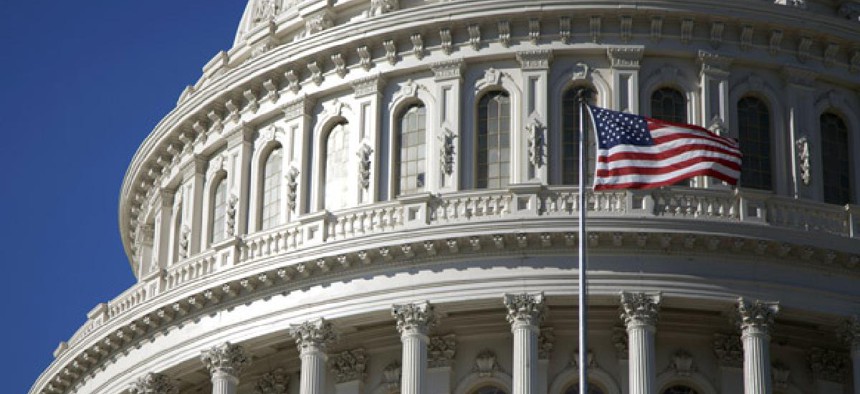How Congress gets away with not paying its interns
Unpaid congressional intern labor is legal because lawmakers made it that way.
Over the last seven months, we've seen three separate former-intern suits, from interns who worked on Black Swan and at Harper's Bazaar and the Charlie Rose Show. These interns -- all of them in the private sector -- say they did work for which full-time employees would get paychecks, and therefore, they're suing. But there's one sector that seems to be exempt from the coming surge of intern suits: The government itself.
The Fair Labor Standards Act dictates that private sector internships must meet the following six criteria, determined by the Department of Labor, to be legal:
The internship, even though it includes actual operation of the facilities of the employer, is similar to training which would be given in an educational environment; The internship experience is for the benefit of the intern; The intern does not displace regular employees, but works under close supervision of existing staff; The employer that provides the training derives no immediate advantage from the activities of the intern; and on occasion its operations may actually be impeded; The intern is not necessarily entitled to a job at the conclusion of the internship; and The employer and the intern understand that the intern is not entitled to wages for the time spent in the internship.
FLSA further defines interns as "individuals who participate in 'for-profit' private sector internships or training programs ... without compensation," as long as the internships meet each of the above standards. But "if the employer is getting any benefit from the work of the intern, they would have to get someone else to do that work, [whether] that's answering the phone, cleaning, or entering information into a spreadsheet,” Elizabeth Wagoner, the lawyer representing all three of the above intern cases, told The Atlantic Wire.
Unpaid congressional intern duties don't sound too terribly different from the type of stuff media or film industry interns say they deserve pay for. It's "a lot of typical answering-the-phone duties, a lot of admin stuff -- handling, helping the legislative correspondent, constituent correspondence," said Brendan MacArthur, a former unpaid intern for Massachusetts representative Ed Markey. "Making copies and filing certainly happens," he says. But while congressional interns have the same work-for-zero pay experience, they don't have the option of suing. Their unpaid labor is legal under the congressional version of the FLSA, the Congressional Accountability Act, because Congress made it that way.



